I always thought I understood my father. Stoic. Practical. Protective. But nothing could have prepared me for what I discovered after he passed. I never realized just how quietly emotional—and remarkably thoughtful—he truly was.
Let me start from the beginning.
I’m the youngest of three siblings—two older brothers, Daniel and Chris. My mom passed away when I was just over a year old. I don’t have a single memory of her, not even the sound of her voice. I’ve only seen her in faded photographs and heard about her through stories. My brothers, being 10 and 13 at the time, remembered her vividly. They worshipped her memory.
Three years after she died, Dad remarried. Her name was Linda.

Linda was small, with kind eyes and a voice so soft you had to lean in to hear her properly. She had this peaceful presence, like a candle flickering quietly in a dark room.
She became the mother I never had. I was a sickly child—tiny, frail, always catching something. Linda was the one who stayed up with me when I had fevers, who spoon-fed me bland oatmeal and sang little lullabies in whispers. She walked me to preschool, waited at the gate every day, and celebrated my first grade enrollment like I’d won a Nobel Prize.
To me, she wasn’t “Dad’s wife” or my “stepmom.” She was Mama Linda.
But to Daniel and Chris, she was always just Linda. An outsider.
They were never outright cruel in front of Dad, but I’d catch them whispering when they thought no one was listening.
“She’s not our mom. She’s just someone Dad brought home.”
“Don’t trust her, she’s only nice to you because she wants something.”
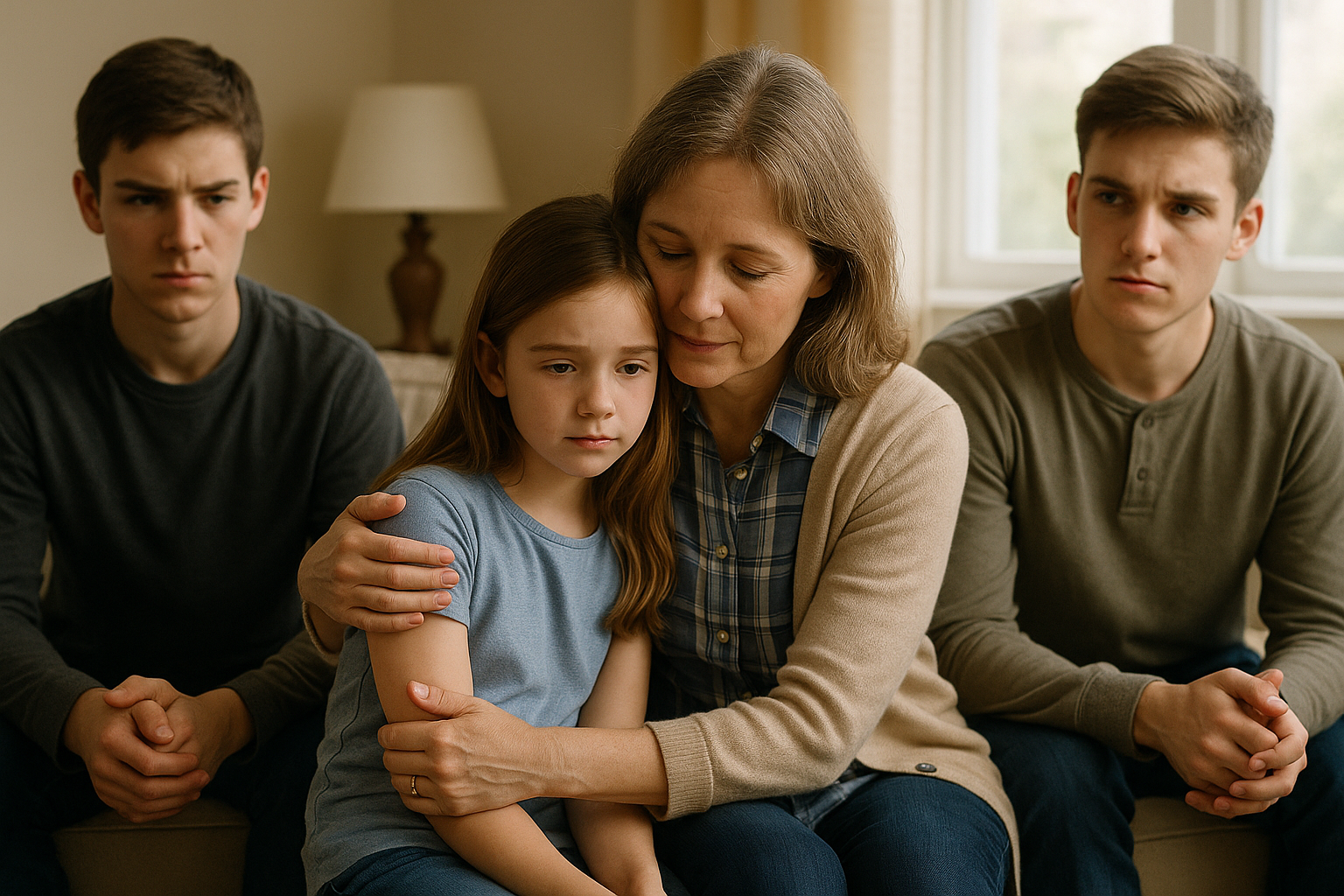
Being a kid, I didn’t know what to believe. At times, I let their words sink in. I started acting out, rebelling against Linda in the smallest ways. One time, in a fit of childish anger, I even cut up one of her blouses. She didn’t yell. She never did. But I saw her crying alone in her room later that night—and for the first time, I felt shame so deep it burned.
As I grew up, I saw things more clearly. Linda wasn’t pretending. She wasn’t manipulating anyone. She loved me. Patiently, unconditionally.
I started calling her “Mama Linda” again, and this time it stuck. I began to notice the little ways she tried to show love to my brothers, too—offering them their favorite snacks, asking about their school, celebrating their birthdays with cakes she baked herself. But they never warmed up to her.
Once, I overheard Dad telling her quietly, “They’re still hurt. It’s not about you. They lost their mom so young.” She just nodded, eyes brimming with tears.
Years passed. My brothers grew up, went to college, and eventually got married. They moved out, built their own families, and left the house to me, Dad, and Linda.
Life became simple after that. Quiet dinners. Garden walks. The hum of Dad’s classical music playing through old speakers while Linda folded laundry.
Then, earlier this year, everything changed.
Dad fell ill—rapidly, unexpectedly. His strong, commanding voice grew hoarse. His energy vanished. He became irritable, snapping at the smallest things. And to my surprise, most of that anger was directed at Linda.
He scolded her for trivial things—how she folded his sweaters, how she seasoned the soup, how she opened the window “too wide.” At first, I thought it was the medication or the frustration of being ill. But it escalated.
Then, one weekend when my brothers visited with their families, it happened.
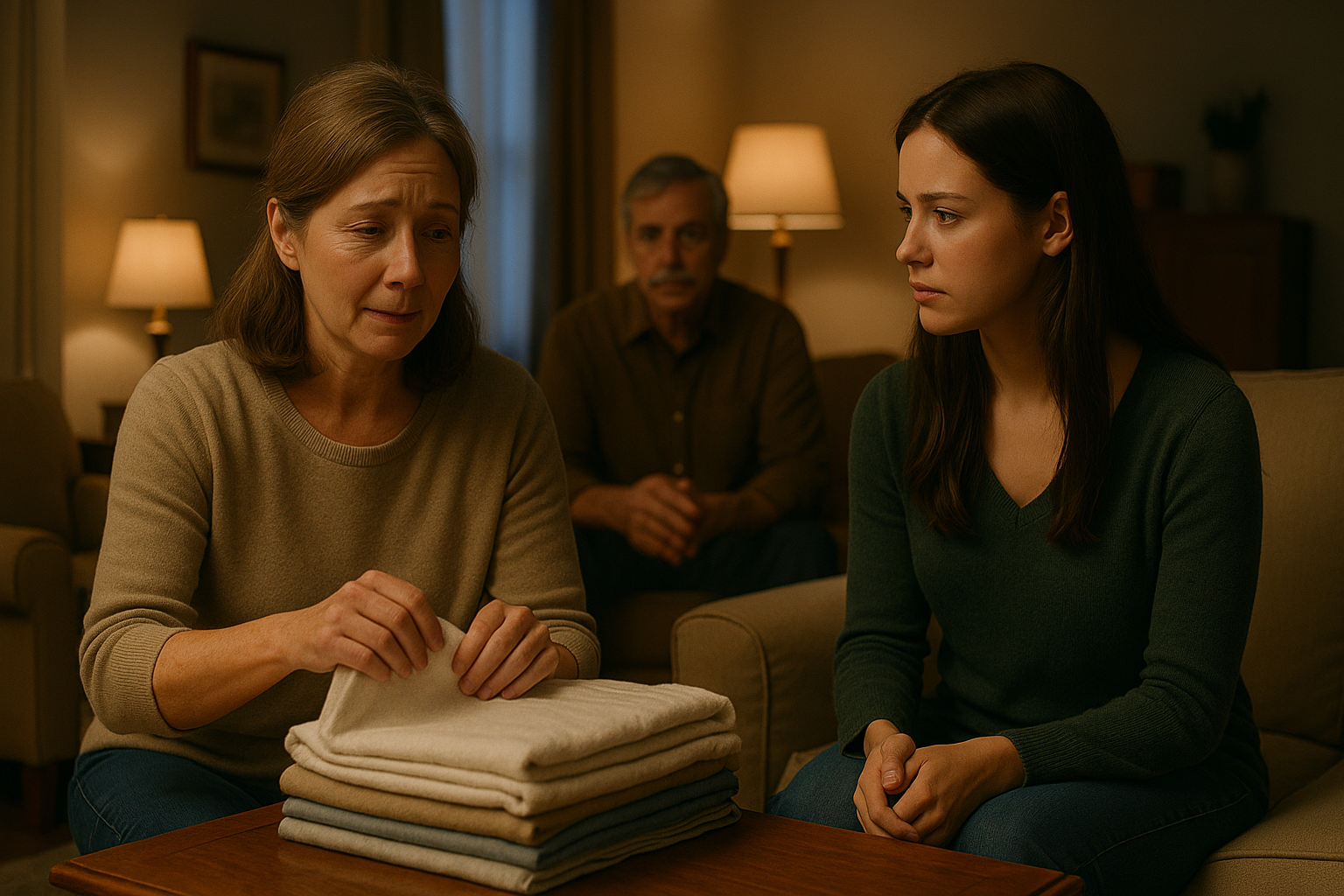
We were all sitting in the living room. The kids were playing, my brothers chatting. Linda brought in a tray of tea and cookies. That’s when Dad looked at her with eyes colder than I’d ever seen and said sharply:
“Linda, pack your things and get out.”
The room fell silent.
“What?” I asked, stunned.
He didn’t repeat it. He just stared at her.
Linda looked like someone had slapped her. But she didn’t argue. She set the tray down, went upstairs, and packed a small suitcase. I followed her, panicked, whispering, “What’s going on?” But she just smiled gently and said, “It’s okay, sweetheart. Just… let it be.”
She left that day. Quietly. My heart ached watching her go.
Two weeks later, Dad called a family meeting.
I came late because of work. When I arrived, the air was thick with tension. Linda was there again—suitcase in hand, her eyes puffy from crying. Dad stood in the corner, distant, stern.
“I’ve made my decision,” he said coldly. “Linda and I have no ties. This is over. Don’t come back.”
My mouth dropped open. “Dad, what—”
“Don’t interfere,” he barked.
I looked at Linda. She gave me one last look—a mixture of sorrow, warmth, and finality—and walked out the door.
She didn’t even take all her things.
I wanted to run after her. I wanted to scream at Dad. But something about the way he sat down afterward, shoulders slumped like a man carrying the weight of a mountain, made me hesitate.
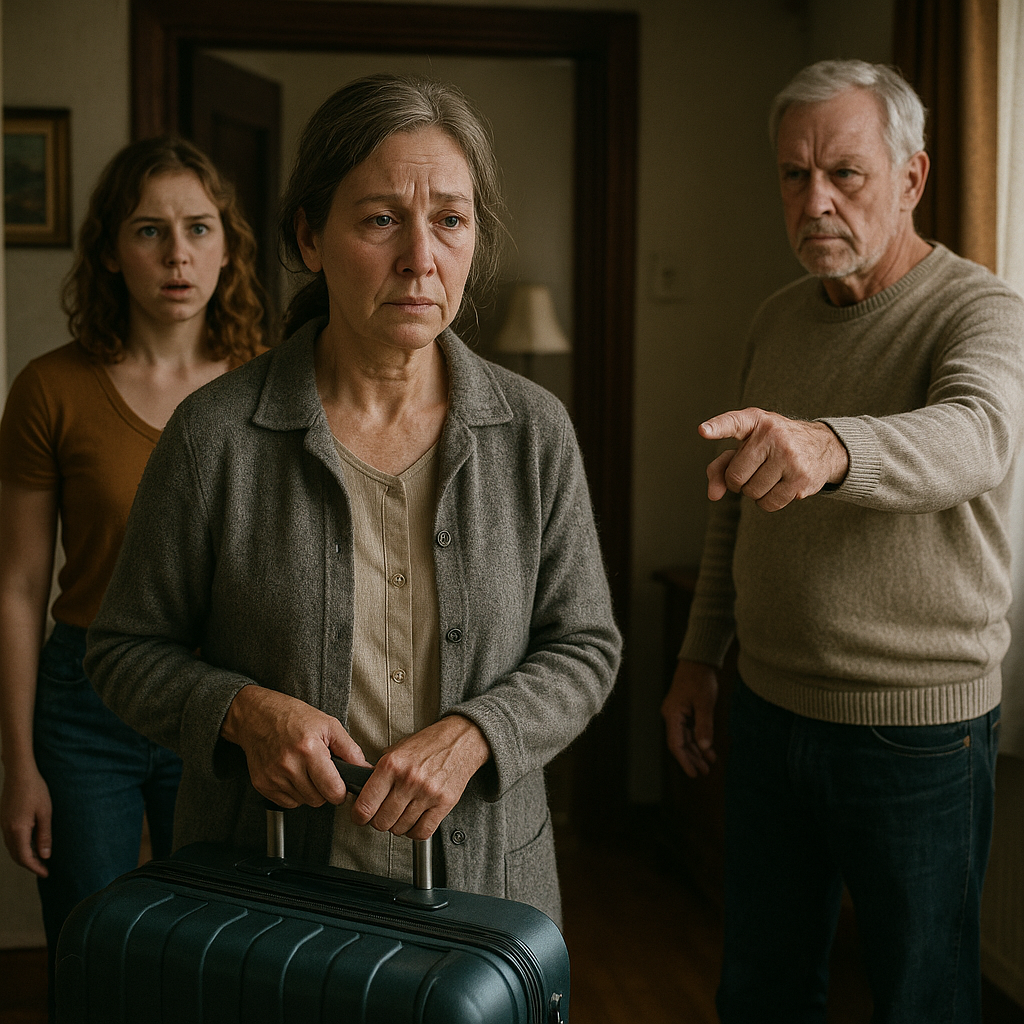
Two weeks later, he passed away peacefully in his sleep.
Linda came to the funeral. She arranged everything. Chose his favorite flowers. Selected a soft jazz piece he loved for the memorial service. She stood by the casket, hands clasped, silent and dignified, as people offered condolences.
And then—like she had so many times before—she disappeared again.
My brothers didn’t stop her. In fact, I overheard them whispering, “Dad probably kicked her out to make sure she couldn’t claim anything.”
After the traditional 49-day mourning period, we met with the lawyer to settle the estate. It was pretty straightforward. Dad had left behind the family house, a small countryside plot, and some farmland.
We split it three ways.
That was it.
I thought the story had ended.
But a few weeks later, something happened that changed everything.
I bumped into one of Dad’s oldest friends, Mr. Jenkins, at the local grocery store. After some small talk, he leaned in and said, “Your dad came to me about four months before he passed.”
“Oh?” I said, curious.
“He bought a house,” Mr. Jenkins continued. “Used my name to make the purchase. Then transferred it to someone else.”
I blinked. “What do you mean?”
“It’s all in Linda’s name now.”
I stood there, stunned. The buzzing fluorescent lights of the grocery store felt suddenly too bright, too harsh.
It didn’t make sense. Why would Dad do that?
But slowly, painfully, it began to click.
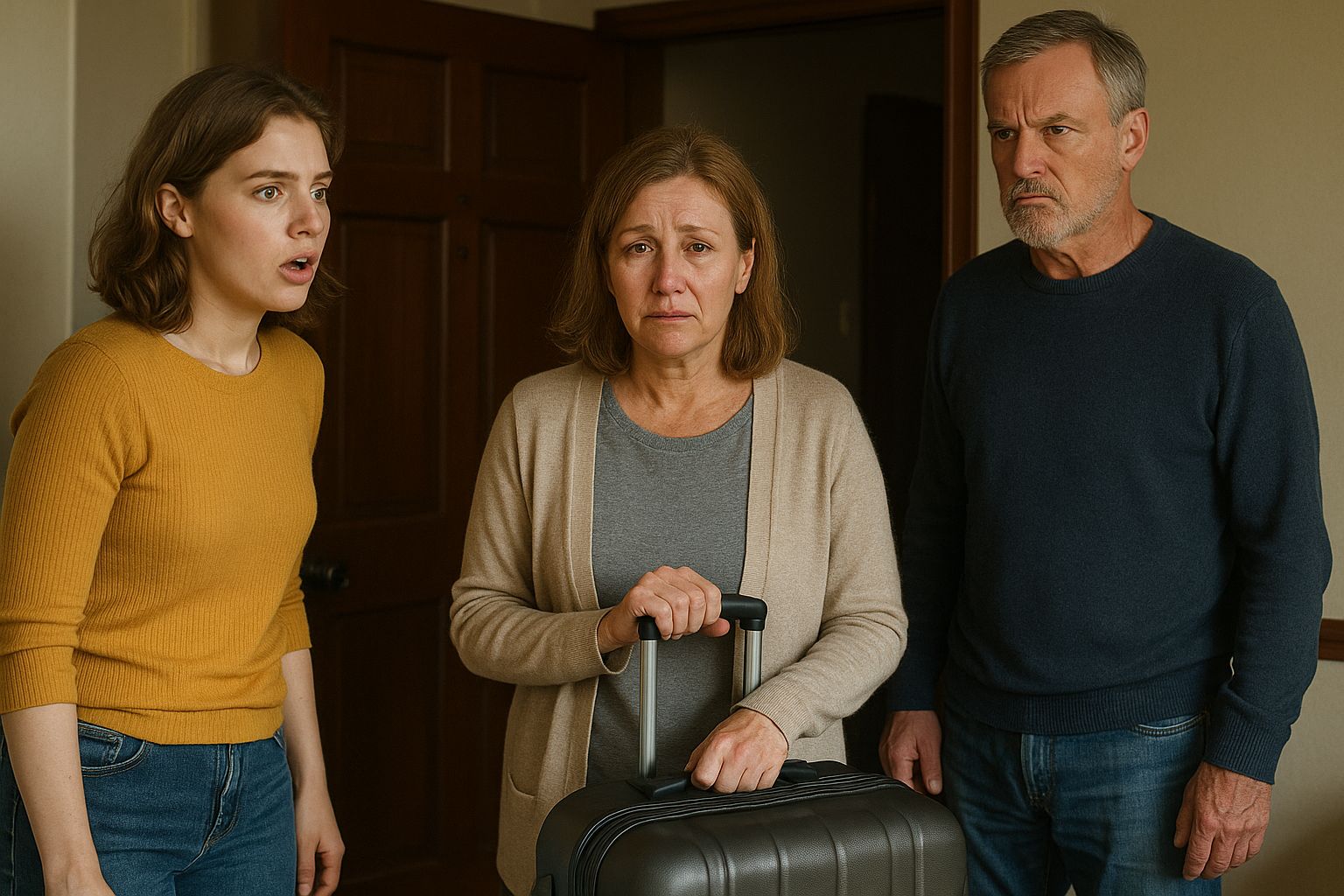
He hadn’t kicked Linda out to punish her or cut her off. He’d done it to protect her.
He knew my brothers. Knew how they resented her. Maybe he’d even seen signs that after he passed, they’d make her life miserable—or worse, try to take everything.
So he’d quietly, carefully, made sure she had something of her own. A home. A sanctuary.
And then he pushed her away in front of everyone, knowing it was the only way to stop us—from ever thinking she had a claim to anything more.
I asked Mr. Jenkins for the address.
It was a small cottage near the edge of town. Nothing fancy. A neat porch, flowerbeds out front. The kind of place where time moved a little slower.
I knocked.
When she opened the door, her eyes widened—but the warmth in her smile hadn’t changed.
We hugged for a long time.
She made tea. We sat at the little kitchen table, sun pouring in from the window. And we talked. About Dad. About my childhood. About the quiet memories we both held.
When I asked her why she never told us, why she didn’t explain, she just smiled sadly.
“Your father made me promise,” she said. “He wanted to leave peacefully, knowing you wouldn’t turn on me. This was the only way.”
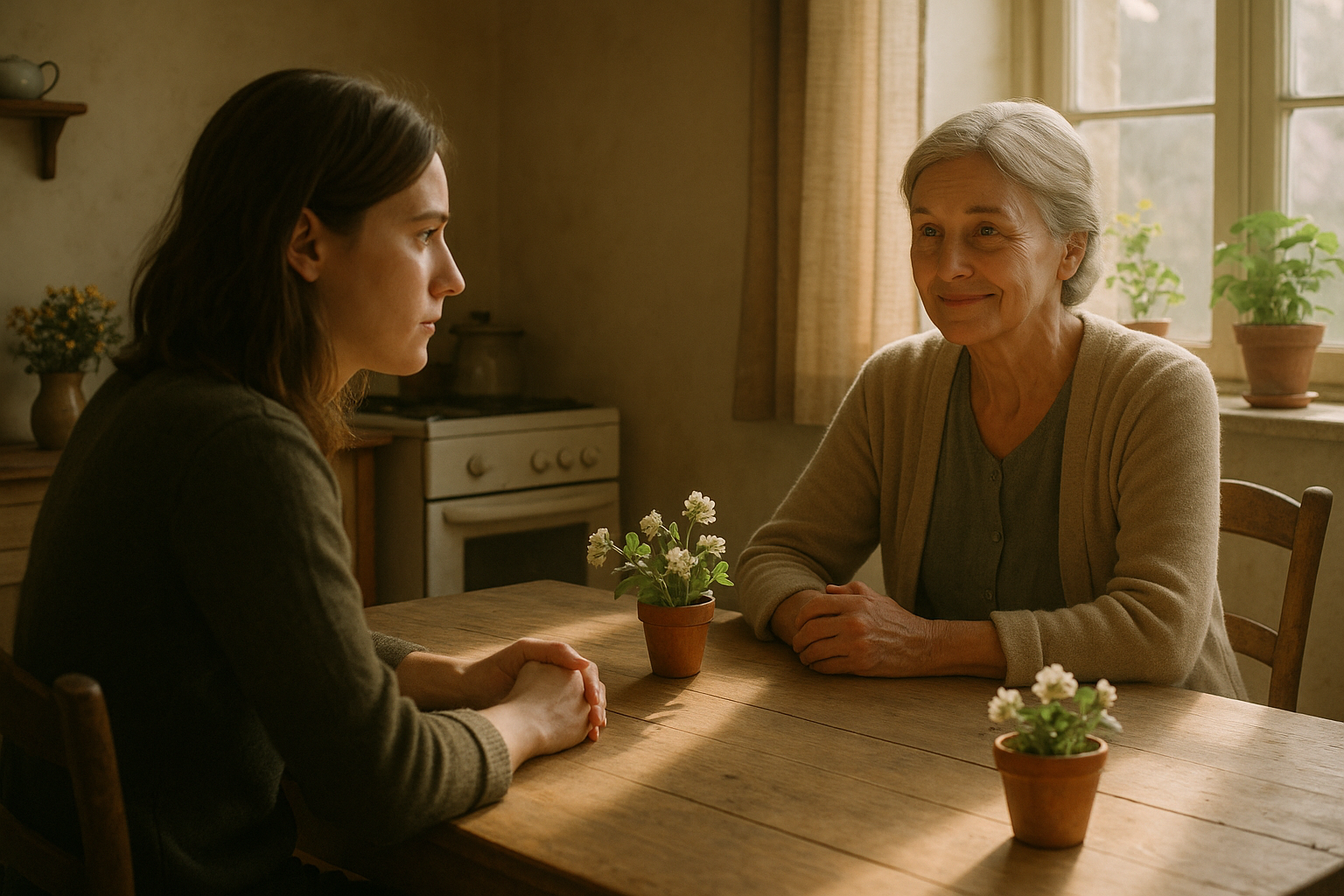
I looked around her home. Everything was modest—neat, simple. But it radiated peace.
That’s all she ever wanted.
Not money. Not property. Not even recognition.
Just peace.
That day, I realized something profound.
My father, the quiet man who never showed much emotion, had made the most selfless, loving decision I’d ever seen. He had anticipated everything. And in the end, he chose to protect the one person who stood by our family, through every storm, every unkind word, every lonely moment.
Linda loved me as her own. She never demanded thanks. She just gave. And when my father saw that no one else would protect her, he did—at the cost of his own dignity and reputation.
He chose peace for her. He chose love.
And I’m proud to say, so do I.
If this story touched you, share it. Because sometimes, love is quiet. And protection comes not in grand gestures—but in thoughtful silence.


